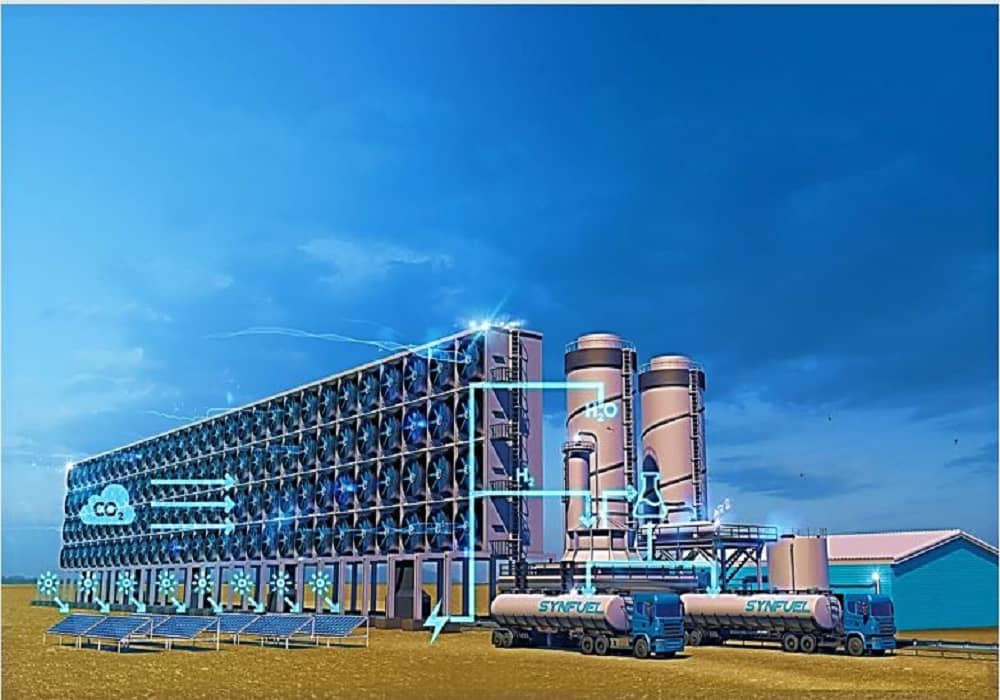Fuel cost calculation: What is synthetic fuel and can it replace diesel-petrol. This is in the month of November of the year 2021. A plane took off from a small airport in England and made history.
A pilot of the British Royal Air Force had the control of this plane in the hands and in a short journey he set a Guinness Record.
This was the first such flight in the world in which fully synthetic oil was used. This fuel was prepared by a British company, Zero Petroleum.
Apart from Zero Petroleum, there are other companies in other parts of the world who are working on the development of synthetic fuels and these are also known as e-fuels.
From Bilbao in Spain to the Nevada desert of America and the southern region of Chile, work is going on on synthetic fuel. There is a growing interest in synthetic fuels at a time when new alternatives are being explored to replace conventional fuels. Such haste had never been seen before in the past.
UN warning
According to the IPCC, the United Nations Committee on Climate Change, the carbon dioxide from fossil fuel consumption is to ensure that the earth’s temperature does not rise by more than one and a half degrees centigrade compared to pre-industrial temperatures. emissions need to be reduced by 45 percent by 2030.
UN Secretary-General Antonio Guterres has repeatedly said in his messages this year that “we are rapidly moving towards disaster in terms of climate change.”
Guterres also pointed out that increasing the use of non-conventional energy will increase the expectations of millions of people affected by climate change.
Could synthetic fuels be the solution to climate change?
BBC Mundo has tried to understand what are synthetic fuels? How friendly are they to the environment and to what extent they can be effective in meeting the challenge of global warming.
What are synthetic fuels?
Chemically synthetic fuel and fossil fuel (fossil fuel) are one and the same thing. Both types of fuel are hydrocarbons. Carlos Calvo Ambel is an expert in traffic and energy affairs for Transport and Environment, a non-governmental organization in Brussels.
He says, “Hydrocarbon is a molecule which is made up of hydrogen and carbon. What usually happens is that oil is extracted from the earth, it is refined and by this process we get petrol, diesel and kerosene. Is.”
On the other hand, in the case of synthetic fuels, hydrogen and carbon are taken from other sources. For example, hydrogen is obtained by breaking down water molecules into its components hydrogen and oxygen.
Electricity is used in this process and in the language of science it is called water electrolysis.
Carlos Calvo Ambel says, “You try to break down the water molecules into hydrogen and oxygen and keep the hydrogen. The second thing is the need for carbon which can be obtained from different sources.”
He said, “You can also get it from the chimney of a factory that emits carbon dioxide or it can also be taken directly from the air. If you break the carbon dioxide into carbon and oxygen, you get carbon. “
After this, hydrogen and carbon can be combined with the help of a hydrocarbon chain and its production is possible industrially. “So artificially you can create molecules that will be the same as conventional diesel, petrol or kerosene,” says Carlos Calvo Ambel.
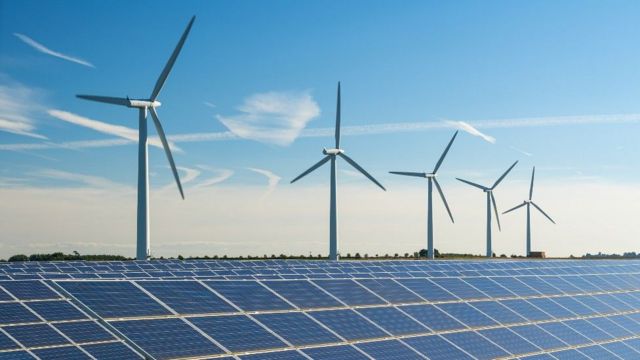
How friendly are synthetic fuels to the environment?
Carlos says, “For synthetic fuels to work for a long time, it is important that the electricity used throughout the process is renewable electricity. The production process will not be clean.”
But like petrol and diesel, when synthetic fuel is used, it will release carbon dioxide gas. Carbon dioxide is also one of the greenhouse gases affecting climate change.
Carlos says that for this reason synthetic fuel will not be successful unless the carbon is taken from the CO2 present in the air.
“If you burn synthetic fuel and release carbon dioxide back into the atmosphere, it will settle down and there will be no additional pollution,” he says.
Nilay Shah, Professor of Engineering at Imperial College, London, is one of the founders of Zero Petroleum.
He told BBC Mundo that the fuel used in the British Royal Air Force aircraft flying on synthetic fuel was made entirely with the help of renewable energy.
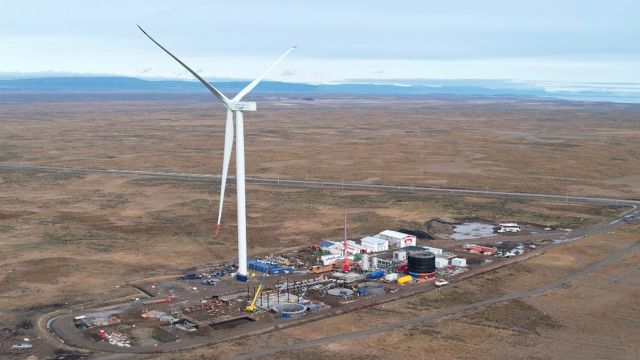
How much synthetic fuel is being produced at present?
Carlos says, “The amount of synthetic fuel that is being produced at the moment is very small. But the process can be accelerated.”
In addition to Zero Petroleum, American company Fulcrum BioEnergy is working on developing synthetic fuel. She is also building a refinery in Nevada.
In the case of fulcrum bioenergy, the carbon dioxide will not be taken from the air but from the methane released from the decomposition of municipal waste.
A Chilean company HIF Global (Highly Innovative Fuels) is working on synthetic fuels in its home country as well as in the US and Australia.
HIF Global started work on a plant in Chile in the year 2021. The company says that the work of this plant named ‘Haru Oni’ has been completed to a great extent and carbon neutral fuels (efuels) will be produced here. Production of e-fuels is expected to start by the end of this year.
“Hydrogen can be obtained from the electrolysis of water and carbon dioxide. The goal may be to synthesize methanol and use gasoline without any modification in current vehicles,” the company said.
The goal is to make synthetic fuel using wind energy available in sufficient quantity.
On the other hand, Spain-based energy and petrochemical multinational Repsol told the BBC in a written reply that it “in May this year started building one of the largest synthetic fuel plants in the Port of Bilbao.”
“It will have a 10 MW electrolyser to produce 2,100 tonnes of fuel each year, specifically for aircraft, ships and trucks. Repsol plans to open its synthetic fuel plant in 2024.”
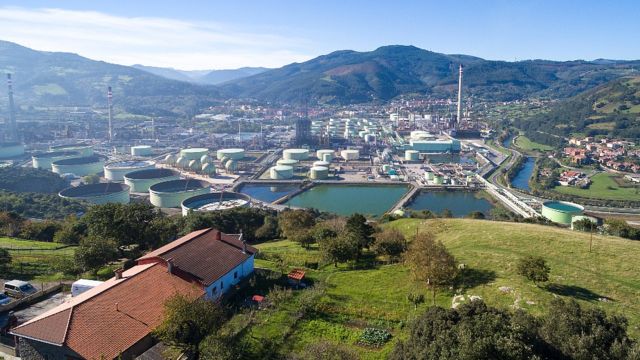
Will synthetic fuel work in cars?
James Dyke, a climate change expert at the University of Exeter in England, believes that synthetic fuels will not be as effective in automobiles.
“We are seeing steady growth in electric cars and charging infrastructure at the moment. Hydrogen also has a potential role in road transport as a fuel,” Dike told BBC Mundo.
For Calvo Ambell, there is no point in producing synthetic fuel for cars.
“That electricity can be used directly in an electric car and there is no harm in that,” he says.
“Or you can use that electricity to collect carbon dioxide, produce hydrogen, then use it in an engine that’s less efficient because the energy in a diesel or gasoline engine is lost as heat. “
The European Parliament this month called for a ban on the use of combustion engines, ie gasoline and conventional diesel, in new cars from 2035.
While promoting the use of synthetic fuels in cars, oil companies have been criticized by some critics for their efforts to keep production, sales and consumption of conventional cars for as long as possible, and the delay in the introduction of electric vehicles through this. Huh.
BBC Mundo raised this criticism in front of Repsol.
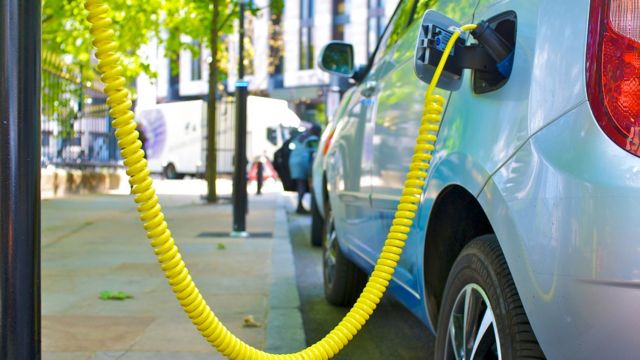
The company told BBC World, “The goal is to make the transport sector carbon-free and we must put forward all options that are capable of reducing emissions in the fastest and most effective way. Technology should be allowed to compete with each other and help each other.”
Racepos explained that one of the advantages of developing synthetic fuels for automobiles is that “these renewable energy can be used in existing vehicles without any changes to its engine and its infrastructure, thus allowing cars to run on the road.” Emissions from them can be reduced without change and we will not even have to wait for electricity or hydrogen energy for this.
At the same time, about the criticisms regarding efficiency, Repsol says, “When it is said that the direct use of electricity to drive vehicles will be more effective, some important factors related to it are omitted.”
“First of all, a vehicle must have renewable energy supply and the generation and supply of electricity all together and it is not always possible to connect the vehicle to the grid at the exact time.”
“Secondly, if battery-powered vehicles are to be able to travel over long distances, then larger capacity batteries will have to be installed in them and this will increase their weight. So, increasing their weight will consume more energy during travel. Which will have consequences on their ability.”
“While in the case of synthetic fuel, when traveling over long distances, excess fuel will not affect its weight and accordingly its efficiency.”
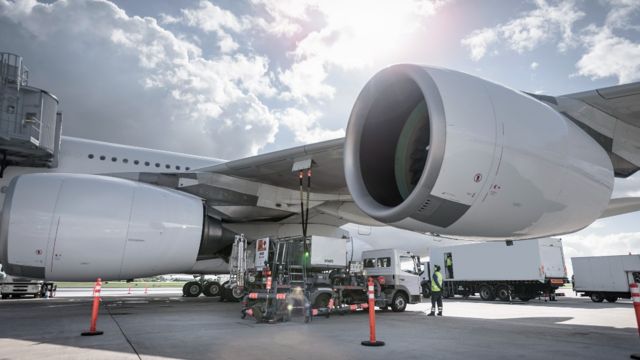
Would synthetic fuels work for airplanes as well?
“We only see the potential of synthetic fuels in one case, and that’s airplanes, because if we really want to be carbon-free, there’s no alternative to burning kerosene,” says Calvo Ambel.
So should the production of biofuels be increased instead of synthetic fuels to make aviation carbon-free?
According to transport and environmental experts, “Biofuels that are obtained from fossils of plants do not provide a proper solution for this, but there are many risks in their use.”
“In Europe, about 15 million bread crumbs are burned every day and used as bio-ethanol fuel in cars.”
“If you produce biofuel from soybean or palm oil or sunflower oil, you need to have a large piece of land,” he says.
“And as we know, palm oil production generally causes deforestation in the Amazon or Southeast Asia. And ultimately, instead of being a remedy for disease, it makes it worse.”
Calvo Ambel says, “As far as using edible oil as jet fuel is concerned, it is also not a proper option.”
“Even if we take all the oil that is being used in cooking in America, even 1% of that country’s fuel demand will not be met.”
Calvo says, “In terms of transportation and the environment, we need to start using synthetic fuel in airlines by 2030, even if it is at least one percent, so that it can be decided gradually where we go in this direction.” Because we can’t use kerosene for the rest of our lives.
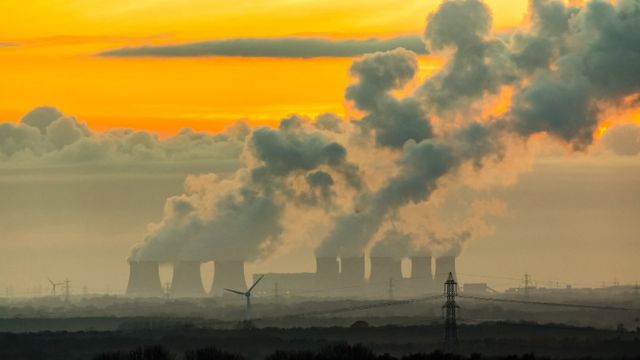
So can synthetic fuel production be increased?
Experts that BBC Mundo spoke to agree that increasing the production of synthetic fuels is technically possible.
But increasing that production will require a large amount of renewable energy, which is the biggest challenge.
“Europe knows that if all airplanes flying from there are to run on this fuel, then they will have to import a large number of windmills, solar panels.”
“For example, the German government recently entered into an agreement with Chile in this direction, but it is still in its early stages.”
Professor Nilay Shah points out that there are many challenges in scaling up production to meet the synthetic fuel requirement of airlines globally.

They enumerate those challenges one by one:
Chemistry means that the chemistry will have to be further improved so that the inputs (carbon dioxide and hydrogen) are converted into fuel according to the exact requirement (it is also important here that it is without additional gas production).
Ensure availability of renewable energy in required quantity
Adequate electrolysis capability has to be ensured for hydrogen production
Appropriate sources of carbon dioxide have to be established (eg – may be obtained directly from the air)
“The current price of synthetic fuel is already higher than that of fossil fuels, but it is expected to come down over time,” says Shah.
Experts from Imperial College point out that “we have to reduce emissions in every area.”
Some sectors such as aviation and the maritime sector will require high-energy fuels.
“Therefore, synthetic fuels are likely to be important to meet the energy demand of the region for the foreseeable future.”
